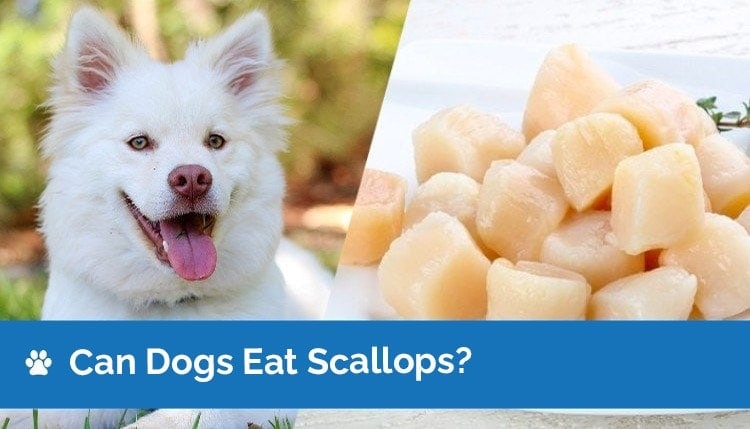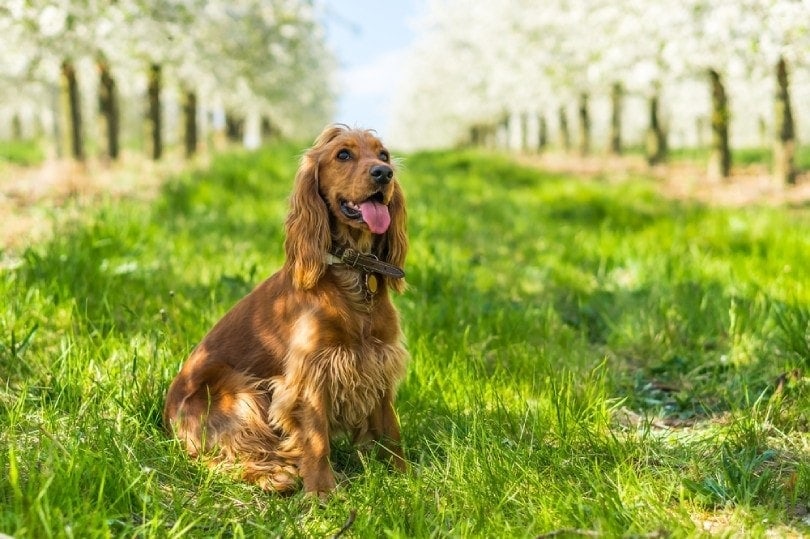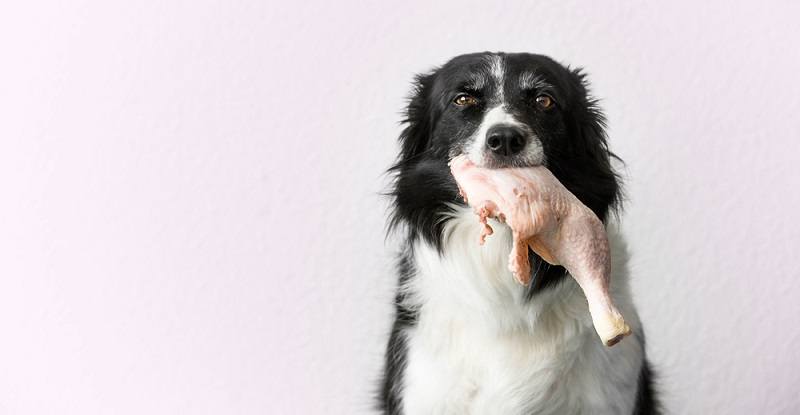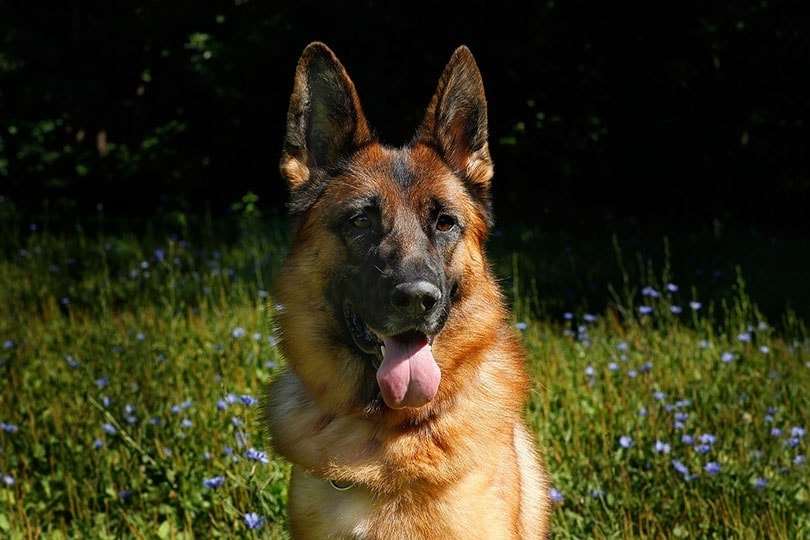Has your dog just wolfed down your scallop dinner while you weren’t looking? You’re likely in for a messy evening. Scallops are, strictly speaking, non-toxic to dogs. But all the seasonings and oils that people love to put on them will certainly mess up your pup’s tummy.
In this article, we’re going to take a more detailed look at what scallops are, why they can be harmful to your dog, and even some of the nutritional benefits of these succulent bivalves.
Scallop Fun Facts
The name “scallop” refers to a huge number of marine bivalve mollusks of the taxonomic family Pectinidae. Scallops live in every single ocean in the world, generally along the sandy bottom but sometimes attached to rocks or seaweed.
Many scallop species are highly valued as a food source. The main edible part is the meaty abductor muscle, which has become known in the culinary world as scallops.
Owing to their worldwide distribution, scallop shells are common occurrences on beaches. Their bright colors and pleasing shape make them popular collectibles. The iconic scallop shell also has significance in history, theology, and pop culture.
Pre-Christian Celts used the scallop as a symbol to refer to the setting sun. And numerous Christian saints are associated with the scallop shell, including St. James the Great and St. Augustine. Even powerful families such as the Churchills and Princess of Wales have used it in heraldry and crests.
Reaching even further back into antiquity, scallop shells have been representations of femininity and fertility in multiple cultures. The most famous of these is seen in the many depictions of the Roman goddess, Venus. Botticelli painted her riding on an open scallop shell in The Birth of Venus.
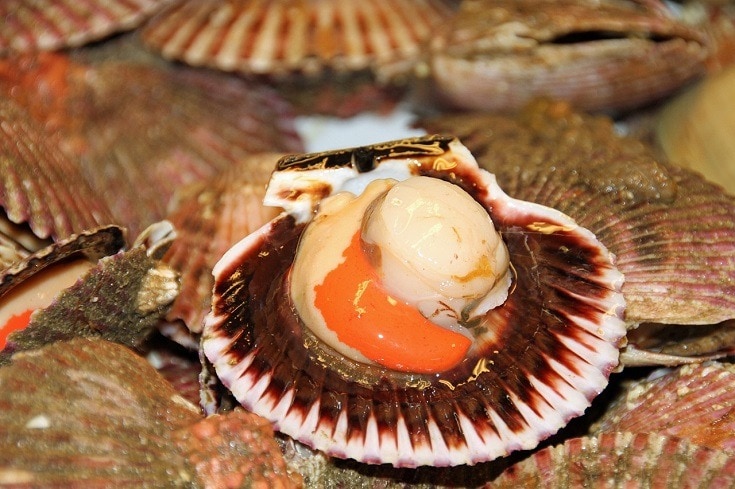
Can Scallops Be Bad for Dogs?
When our dogs are curious about a food, we usually ask a few basic questions before we even consider sharing:
- Does this food have added salt, seasonings, or sugar?
- Could it be a choking hazard?
- Is it related to any known toxic foods? (Alliums, grapes, macadamia nuts, etc.)
Though non-toxic and of minor nutritious value, there are many situations in which scallops can be bad for dogs to eat. Large quantities of any food that a dog wouldn’t have in a “natural” diet can always cause issues, and scallops fall into that category.
Digestive Upset
Digestive upset is the most common side effect of a dog eating something prepared for human consumption. Canine stomachs just aren’t built to handle the myriad seasonings, salts, butter, oils, and batters used to make things like fried scallops.
All that extra oil can irritate the stomach to cause vomiting and act as a powerful laxative.
Save yourself the Imodium and clean up by exercising a lot more caution with the people food you share with your dog. That’s part of why we call it “people food.”
If your dog eats your scallop dinner, try to make them comfortable. Supply plenty of fresh, clean water for them to drink. And stay up with them to make sure they can get outside for any emergency bathroom visits. Barring extreme circumstances, you are unlikely to need to go to the vet.

Salmonella, Parasites, Shellfish Poisoning
Just like other raw seafood, scallops can carry harmful bacteria or parasites. Salmonella, listeria, roundworms, and tapeworms are just a few.
Bivalves are especially at risk for causing food poisoning. In the ocean, bivalves like scallops filter the water – and whatever is in it – through their body. That means if the scallops you got are from a polluted or dirty area they could carry all kinds of toxins and plankton that cause shellfish poisoning.
Be extra careful when handling any raw scallops or seafood around your dog. And if they do get a bite or two, make sure it’s after the food is fully cooked.
Possible Health Benefits of Scallops for Dogs
In small, properly cooked amounts scallops may be able to confer some health benefits to your dog.
Scallops are high in protein and are leaner than many red meats. Though it shouldn’t be a main source of protein, scallops may be a good snack that will give your pup fuel for playtime and exercise.
These oceanic bivalves are also rich in phosphorus, potassium, and magnesium. Phosphorus is a key nutrient for forming bones and teeth. Potassium can help prevent osteoporosis and kidney stones. And magnesium supports a healthy immune system and strong bones.

How to Feed Scallops to Your Dogs
It is not advisable to feed scallops to your dog regularly, or in large quantities. But if you’d like to give your pup a small treat once in a while or spruce up mealtime occasionally they could be an appropriate option.
The keys to preparing seafood for a dog are twofold: fully cooking and lack of seasoning. Scallops you allow your dog to eat should be fully cooked to kill any possible bacteria or parasites that may cause nasty shellfish poisoning. And don’t add any butter, salt, or fry a dog’s seafood snack.
If you’re making scallops for yourself, for example, you could use a separate pan and no oil to cook up a few scallops for your pooch. Steaming and boiling are other cooking options and reduce the need for oil. That way you can both have your seafood the way that’s best for you!
Can Puppies Eat Scallops?
Due to a puppy’s more sensitive stomach, it is inadvisable to let them eat scallops or any unconventional dog food for that matter. It’s probably best to just stick with a healthy and well-balanced dog food, like Wellness CORE or Blue Buffalo, and vet-approved treats.
Final Thoughts on Feeding Scallops to Your Dog
Here’s a quick recap for the folks who just want the lowdown on whether they should share some scallops with their canine companion:
- Are scallops toxic to dogs? No, but raw scallops can cause shellfish poisoning.
- Can scallops be bad for dogs? Yes, especially when raw or cooked in oils, salts, and breading.
- Can scallops be good for dogs? Maybe, but only as an occasional treat.
So, should you feed your dog scallops? That is entirely up to you and your veterinarian. With proper preparation, seafood like scallops can be a sumptuous, high-protein canine treat. But a careless doggy dinner of fried scallops will likely cause a seriously upset tummy.
Featured Image Credit: Andrey Starostin, Shutterstock

